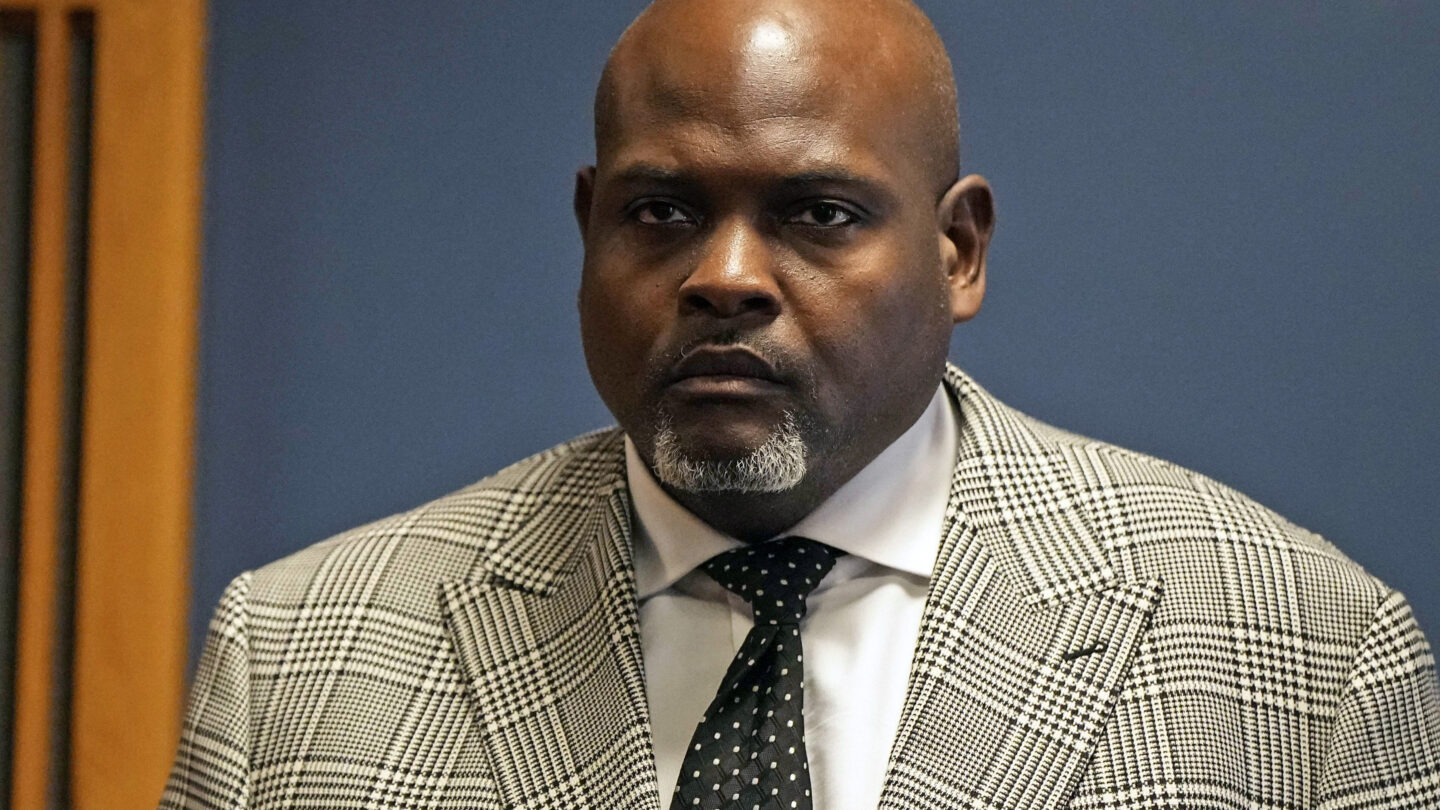In Georgia case, ex-law partner says he doesn't know when Willis and Wade's relationship began

Updated at 4:23 p.m.
A potential key witness for lawyers seeking to derail the Georgia election interference case against Donald Trump and others returned to the witness stand Tuesday, but repeatedly said he couldn’t remember when pressed about details of the romantic relationship between District Attorney Fani Willis and another top prosecutor.
Special prosecutor Nathan Wade’s former law partner and onetime divorce attorney, Terrence Bradley, testified that he does not know when Wade’s relationship with Willis began, adding: “I do not have knowledge of it starting or when it started.”
The defense attorney questioning him appeared to grow frustrated at his lack of answers, at one point remarking: “He doesn’t remember much of anything right now.”
Bradley’s testimony was believed to be potentially crucial as defense attorneys seek to undercut Willis and Wade’s claims about when their romantic relationship began. That timeline has become a central issue as defense attorneys push to have Willis and Wade removed from the case, arguing that their relationship created a conflict of interest.
Willis and Wade both testified under oath that they didn’t begin dating until after he was hired as special prosecutor in November 2021. But information that has come to light has raised questions about the truthfulness of the prosecutors’ testimony. One witness, a former friend and co-worker of Willis, told the court that she saw the pair hugging and kissing before he was hired as special prosecutor.
And an analysis of cellphone location data in a court filing from Trump’s attorneys also shows Wade had visited the neighborhood south of Atlanta where Willis lived at least 35 times during the first 11 months of 2021, an investigator said. Wade had testified that he had been to the condo where Willis lived fewer than 10 times before he was hired as special prosecutor in November 2021.
Bradley cited attorney-client privilege in refusing to answer most questions during an extraordinary two-day evidentiary hearing earlier this month that thrust the prosecutors’ private lives into the spotlight. But Judge Scott McAfee said some of Bradley’s communications with Wade were not subject to privilege, according to multiple attorneys who received an email from the judge setting the hearing for Bradley to continue testifying.
McAfee has scheduled arguments for Friday afternoon on whether Willis and her office should be removed from the case.
Willis’ removal would be a stunning development in the most sprawling of the four criminal cases against Trump. If she were disqualified, a nonpartisan council that supports prosecuting attorneys in Georgia would need to find a new attorney to take over. That successor could either proceed with the charges against Trump and 14 others or drop the case altogether. Even if a new lawyer went forward with the case, it would very likely not go to trial before November, when Trump is expected to be the Republican nominee for president.
A Fulton County grand jury indicted Trump and 18 others in August, accusing them of participating in a wide-ranging scheme to illegally try to overturn the 2020 election in Georgia. Four people have pleaded guilty after reaching deals with prosecutors. Trump and the remaining 14 have pleaded not guilty.
The effort to remove Willis and her office from the case began last month with a motion filed by Trump co-defendant Michael Roman and has since been joined by the former president and some other defendants. Roman’s filing alleges that Willis paid Wade large sums for his work and then improperly benefited when he used his earnings to take her on vacations. It also alleges that Willis and Wade were already dating when she hired him in November 2021.
Willis and Wade have both said that they shared travel expenses, with Willis reimbursing Wade with cash for some charges on his credit card.
Under questioning from Roman’s attorney, Ashleigh Merchant, earlier this month, Bradley acknowledged that he had communicated with her between September and January as she was investigating the possibility of the relationship. But Merchant and other defense attorneys were repeated frustrated by Bradley’s refusal to answer further questions about the relationship.








